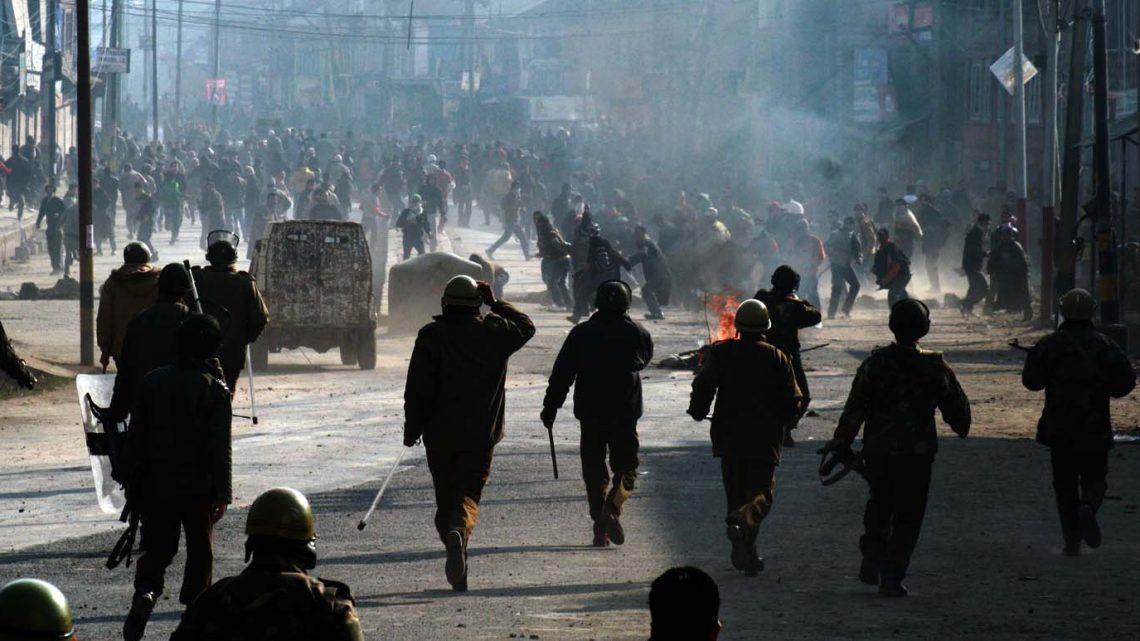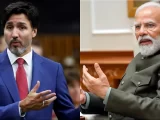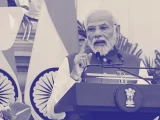
Unraveling the BJP’s Agenda: The Subjugation of Kashmir and the Erosion of Democracy
May 11, 2024The history between New Delhi and Kashmir since 1947 has been marred by mutual suspicion and a profound trust deficit. Over the years, New Delhi’s erosion of Jammu and Kashmir’s autonomy, coupled with its narrow security-focused approach to the region, has deepened the sense of betrayal among Kashmiris. Despite sporadic hopes for a resolution to the Kashmir dispute, these aspirations dwindled with the ascent of the Narendra Modi-led Bharatiya Janata Party (BJP) government in 2014, and further waned when the BJP formed a coalition with the regional Peoples Democratic Party (PDP) in 2015.
Under Modi’s leadership, the BJP, guided by the Rashtriya Swayamsevak Sangh (RSS), achieved one of its long-standing ideological goals by revoking Article 370 of the Indian constitution in 2019. This move stripped Jammu and Kashmir of its special status and heightened the subjugation of its people, particularly Muslims, under the guise of national security. The BJP’s agenda in Kashmir extends beyond mere political integration; it seeks to alter the demography of the region to facilitate Hindu dominance, in line with the RSS’s Hindu nationalist ideology.
The BJP’s aggressive tactics in Kashmir, including increased militarization, economic marginalization of locals, and suppression of dissent, have exacerbated tensions and fueled alienation among Kashmiri Muslims. The BJP’s alliance with the PDP, a party historically supported by the Kashmir Valley, further deepened disillusionment and sparked widespread protests and armed resistance, notably following the killing of militant commander Burhan Wani in 2016.
While the BJP’s withdrawal from its coalition with the PDP in 2018 and the subsequent imposition of direct rule from New Delhi allowed for greater central control over Jammu and Kashmir, it also intensified militarization and surveillance. The BJP’s hyper-nationalistic rhetoric and portrayal of Kashmir as a strategic asset for India’s sovereignty have normalized the suppression of Kashmiri voices in the national discourse.
The BJP’s triumphalist narrative following the revocation of Article 370 underscored its disregard for the rights and aspirations of Kashmiris. Mainstream media and social media in India largely overlooked the human rights violations and applauded the BJP’s actions as a victory for national unity. This attitude reflects the contemptuous view of Kashmiris held by the Hindu nationalist establishment, as evidenced by derogatory remarks made by BJP leaders.
The BJP’s Hindutva ideology, rooted in exclusionary nationalism and animosity towards minorities, perceives Kashmir as a key battleground for asserting Hindu dominance and marginalizing Muslims. The broader project of Hindu majoritarianism in India, fueled by anti-Muslim sentiments and propaganda, further entrenches divisions between Kashmiri Muslims and Indian Muslims, despite shared experiences of discrimination and victimization. The BJP’s consolidation of power in Kashmir aligns with its larger agenda of transforming India into a Hindu majoritarian state, with Kashmir serving as a testing ground for oppressive policies and nationalist narratives. As Kashmir remains politically paralyzed and elections are suspended, the revocation of Article 370 looms large in the minds of voters, highlighting the enduring significance of Kashmir’s autonomy in the Indian political landscape

